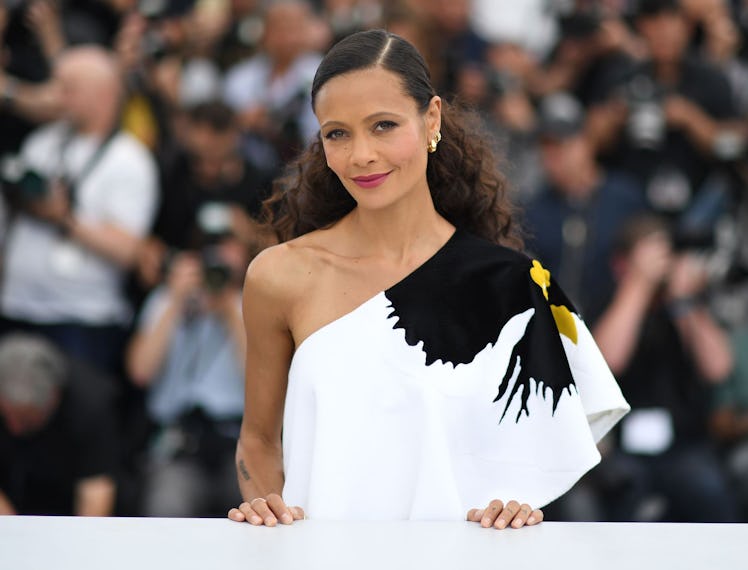Thandiwe Newton Embraces Her Birth Name: “I’m Taking Back What’s Mine”

It wasn’t easy for Thandiwe Newton to become one of the most successful Black-British actresses of all time. Over the course of her 30-year career, the 48-year-old Emmy and BAFTA winner has faced (and candidly discussed) everything from racism to colorism to sexual abuse by a director. Her struggle to find acceptance within the industry goes back to her very first role, opposite Nicole Kidman in the 1991 film Flirting. To Newton’s surprise, she was accredited as Thandie, an anglicized version of her birth name, Thandiwe. (The latter, pronounced tan-DEE-way, means “beloved” in Shona.)
“That’s my name,” Newton, whose first name is technically Melanie, told British Vogue, which captioned her May cover “rebirth of an icon.” “It’s always been my name. I’m taking back what’s mine.” All future projects will accredit her as such.
British Vogue may have described the name change as “careless,” but there’s no denying that Newton was also explicitly mistreated on Flirting’s set. She recalled the director John Duigan’s instructions at her audition: “Be darker by Wednesday.” (She got the role after a weekend of bronzing.) “Colorism has just been the funniest,” Newton continued. “I’ve been too Black, not Black enough. I’m always Black. I’m just like, whadda you people want!”
Newton first faced discrimination when growing up in Cornwall, England. “From about the age of five, I was aware that I didn't fit,” she said at a TED conference in 2011. “I was the Black, atheist kid in the all-white, Catholic school run by nuns. I was an anomaly.” It was as if, she told British Vogue, her family was “the first Black people anyone had ever seen.” Her mother may be a Zimbabwean princess, but in Cornwall, “we didn’t have conditioner. We didn’t have anything.”
Newton is also proud of her British heritage, which has occasionally been disputed in the press; she recalled a British newspaper claiming that she didn’t deserve her BAFTA, seeing as one of her parents is Black. “I remember thinking, ‘But it’s a British win! Why don’t you wanna take that?,’” she said. “Why would you not wanna dig that and embrace it and feel really good?’”
These days, Newton is “grateful” to be in “the company of others who truly see me. And to not be complicit in the objectification of Black people as ‘others.’” That, she added, “is what happens when you’re the only one.”